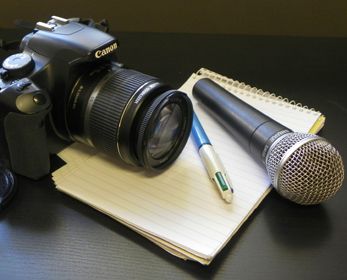By Bill Dan Arnold Borodi.
First and foremost, any type of violence against journalists is simply wrong. Assaulting journalists jeopardises the core values of a free press and the critical role they play in society. However, as we address these serious challenges, we must also consider the complicated connection between journalistic conduct and public perception.
In a recent X Space hosted by Solomon Serwanjja of the African Institute for Investigative Journalism, a discussion regarding media freedom and political accountability, took place against the backdrop of journalists being attacked by security forces affiliated with the National Unity Platform (NUP) .
The space featured panelists like Jan Ajwang, a lecturer at UCU’s School of Journalism, Media and Communication (SJMC), Farish Magembe, President, Greater Masaka Journalists Association (GREMAJA) , Culton Scovia Nakamya, BBS TV , Robert Ssempala, Human Rights Network for Journalists (HRNJ), among others . The moderator , Solomon Serwanjja, is a phD student at Uganda Christian University’s School of Journalism, Media and Communication.
Participants from the audience expressed concerns about perceived biases and potential journalist manipulation for political purposes, emphasising the importance of media scrutiny.
As debates over the attack on journalists and media freedom heat up, it is critical that we, the journalistic community, reflect on our roles and obligations. While we vigorously oppose violence against our colleagues, we must also investigate complaints of bias and misbehaviour within our ranks.
No journalist is immune to threats or violence. However, criticism from the society we serve should not be dismissed. Concerns regarding our credibility and neutrality are not unfounded; rather, they reflect our collective actions and judgements. External forces may attempt to influence and frighten us, but the larger threat is losing our audience’s trust – the basic core of our existence.
Journalism’s ability to impact debates through agenda setting is both a benefit and a setback. While steering public attention, media practitioners must avoid becoming pawns for partisan interests, ensuring that their work reflects a variety of views without succumbing to external pressure.
The propaganda model further describes the dangers of the media becoming a conduit for elite interests. Graduates preparing for careers in journalism must be aware of and resistant to these influences.
During the space, Jan Ajwang noted the complicated relationship between media and politics, highlighting critical questions such as: “Do Politicians truly look at Journalists as partners in the journey of development or as accessories?” This points to a necessity for a re-evaluation of journalists’ and their relationships with politicians .
When faced with these obstacles, it is important to maintain objectivity, independence, and balance. Journalists must engage in fact-based reporting, retain independence from their topics, and provide complete coverage of issues. Maintaining the integrity of the profession requires a focus on continuing journalism education, ethical networking, and adherence to fundamental journalistic ideals.
In a world brimming with influence and incentives to stray from the path of ethical journalism, the responsibility falls on each of us to remain steadfast and true to our calling.
It is incumbent on us, particularly journalists at the start of our careers, to look inward and evaluate the purity of our aims and the honesty of our actions. “Are we unknowingly fueling divisiveness and partisanship?”
Have we drifted too far from the principles of impartiality, independence, and balance that underpin our profession?
As we come to the climax of the World Press Freedom month, as fresh graduate journalists we need to reaffirm our crucial role in a democracy.

Bill Dan Arnold Borodi, is a graduate of UCU ‘s School of Journalism ,Media and Communication as well as a media and communication lead at Otic Foundation.


